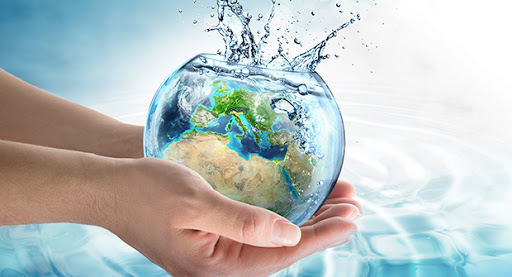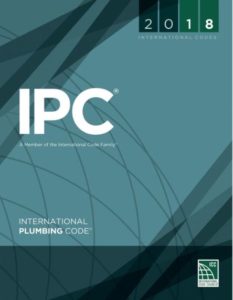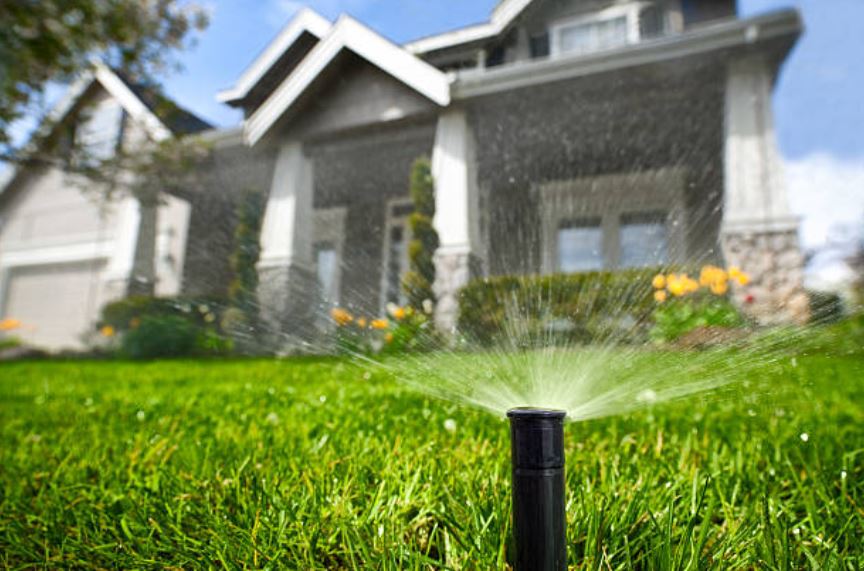
Strong codes support water conservation and efficiency
 Although 70 percent of our planet is covered with water, less than one percent is drinkable. Around 1.9 billion people live in potentially severely water-scarce areas and 2.1 billion people lack access to safely managed drinking water services. Events such as the Flint, Mich., water crisis and drought in the western United States are shining the spotlight on a growing global issue.
Although 70 percent of our planet is covered with water, less than one percent is drinkable. Around 1.9 billion people live in potentially severely water-scarce areas and 2.1 billion people lack access to safely managed drinking water services. Events such as the Flint, Mich., water crisis and drought in the western United States are shining the spotlight on a growing global issue.
The International Code Council joins organizations from across the globe in raising awareness about the importance of water in our everyday lives and the critical water challenges we face in the 21st century from high demand in areas of low availability to quality issues and the disruptive effects of natural disasters.
While we face a number of water challenges today — from high demand in areas of low availability to quality issues and the disruptive effects of natural disasters — the Code Council is dedicated to helping solve these problems through modern, up-to-date building codes and standards that lead to resilient communities, safe plumbing, efficient technologies and a well-trained, professional workforce of code officials and plumbing professionals to maintain these systems. In fact, week two of this year’s Building Safety Month focuses on the all-too-important issue of safeguarding our water and offered tips for conserving water at home and how to get involved and spread awareness.
Last year, the Code Council’s Global Connections Day focused on water safety, efficiency and conservation. It shared this commitment through its water-focused Global Connections Day in conjunction with the U.S. Water Alliance’s “Imagine a Day Without Water” campaign. Experts from around the world convened for an interactive day dedicated to our most precious natural resource and learn about novel approaches and new technologies that are being employed in the U.S. and internationally to address the water challenges of the global community.
The International Code Council family of solutions have several water conservation and efficiency resources available to assist jurisdictions, manufacturers and the public with water conservation and efficiency. For decades, the Code Council’s codes and standards have addressed water-related issues and it remains committed to working with member jurisdictions and industry partners to bring water-efficient products to market, labeling new homes and structures as more water-efficient, and spreading the word about the need for smart water use. Building, plumbing and green codes help guard this precious commodity for future generations through proper construction, conservation and safe disposal.
Water and the International Codes
 The International Plumbing Code (IPC) incorporates innovative technologies including waterless urinals and detailed engineered designs that permit the installation of smaller, more precise water usage and water drainage systems, resulting in the savings of millions of gallons of water. The IPC is the only plumbing code that correlates with the International Energy Conservation Code — the most widely adopted energy code in the world — and for many years it has incorporated innovative technologies like waterless urinals and detail-engineered designs permitting the installation of smaller, more precise water and drainage systems, resulting in the savings of millions of gallons of water and the installation of countless miles of conduit materials.
The International Plumbing Code (IPC) incorporates innovative technologies including waterless urinals and detailed engineered designs that permit the installation of smaller, more precise water usage and water drainage systems, resulting in the savings of millions of gallons of water. The IPC is the only plumbing code that correlates with the International Energy Conservation Code — the most widely adopted energy code in the world — and for many years it has incorporated innovative technologies like waterless urinals and detail-engineered designs permitting the installation of smaller, more precise water and drainage systems, resulting in the savings of millions of gallons of water and the installation of countless miles of conduit materials.
The IPC is not just a code, but a part of a complete building safety system, providing an integral component necessary to stay current with the latest building safety technologies while meeting the public health, sanitation and safety requirements necessary for the built environment. The IPC is a performance-based code, very flexible in its approach to water-saving issues and encourages innovative design, much more so than any other plumbing code.
Last year, the International Code Council released “The Economic Impact of the International Plumbing Code,” a study that provides a comparative analysis of model plumbing codes and their impact on construction, the economy and the environment. Findings show that those jurisdictions that use the IPC save in construction costs, see an increase in construction-related jobs, and benefit from energy efficiency in communities — all done without sacrificing safety.
The comprehensive analysis evaluates the costs and savings associated with construction, labor and materials under the 2018 IPC, as well as estimates the employment and environmental gains that would have resulted from the national implementation of the IPC. Plumbing engineers assessed multiple buildings, such as single-family homes, offices, hotels, schools and grocery stores, and applied model code requirements to determine the associated building costs. The study found that IPC implementation results in considerable savings in plumbing materials and construction costs and increases productivity and job growth in local economies.
The International Residential Code (IRC) contains many of the same water efficiency provisions that are noted in the IPC. The provisions in the IRC for collecting, storing, and using various types of no-potable water recognize the growing need for water conservation and the increase in the development of water conservation programs in many regions of the United States.
The International Green Construction Code (IgCC) contains provisions for the collection, treatment and storage and use of non-potable water in the form of onsite collected rainwater and gray water, and externally treated reclaimed water supplied to the site.
The International Private Sewage Disposal Code (IPSDC), co-published with the National Onsite Wastewater Recycling Association, includes provisions for design, installation and inspection of private sewage disposal systems, and provides flexibility in the development of safe systems. The IPSDC facilitates the use of the latest science-based best practices and innovative technologies in safely handling onsite, decentralized wastewater, thereby reducing customers’ costs. The IPSDC also addresses inconsistencies within many regulations that dictate how decentralized systems can be designed, installed and operated.
Water and standards
 The ICC/ASHRAE 700-2015 National Green Building Standard (NGBS) is the first residential green building standard to undergo the full consensus process and receive approval from the American National Standards Institute. First developed in 2008, the National Association of Home Builders, the International Code Council and ASHRAE partnered to develop the third edition of the nationally recognized standard, which was approved and published in 2016. The development of the 2018 version of the ICC/ASHRAE 700 is currently under draft development.
The ICC/ASHRAE 700-2015 National Green Building Standard (NGBS) is the first residential green building standard to undergo the full consensus process and receive approval from the American National Standards Institute. First developed in 2008, the National Association of Home Builders, the International Code Council and ASHRAE partnered to develop the third edition of the nationally recognized standard, which was approved and published in 2016. The development of the 2018 version of the ICC/ASHRAE 700 is currently under draft development.
The Rainwater Collection System Design Consensus Committee (IS-RCSDI) was appointed by the ICC Board of Directors in collaboration with the CSA Group in late 2013 and has primary responsibility for the development of the Rainwater Collection System Design and Installation Standard. Published in February of 2019, the CSA B805/ICC 805-2018 Rainwater Harvesting Systems Standard will be referenced in the 2021 International Plumbing Code. The standard is available here for download.
The Code Council has a partnership with the Residential Energy Services Network (RESNET) in the development of the Water Efficiency Rating Index, which establishes a system to rate a home’s efficiency in water use. The Code Council is also a partner in the U.S. Environmental Protection Agency’s WaterSense program. Products and services that earn the WaterSense label with the ICC Evaluation Service certification mark are certified to be at least 20 percent more water-efficient without sacrificing performance.
Download our water infographic, “Everyone Needs Water,” as a PDF or JPEG and visit www.iccsafe.org/water for more information.







